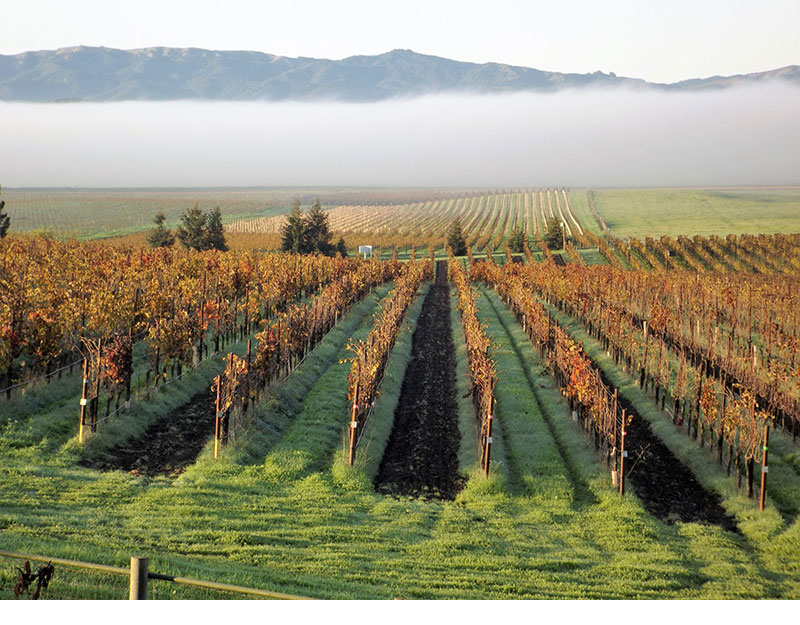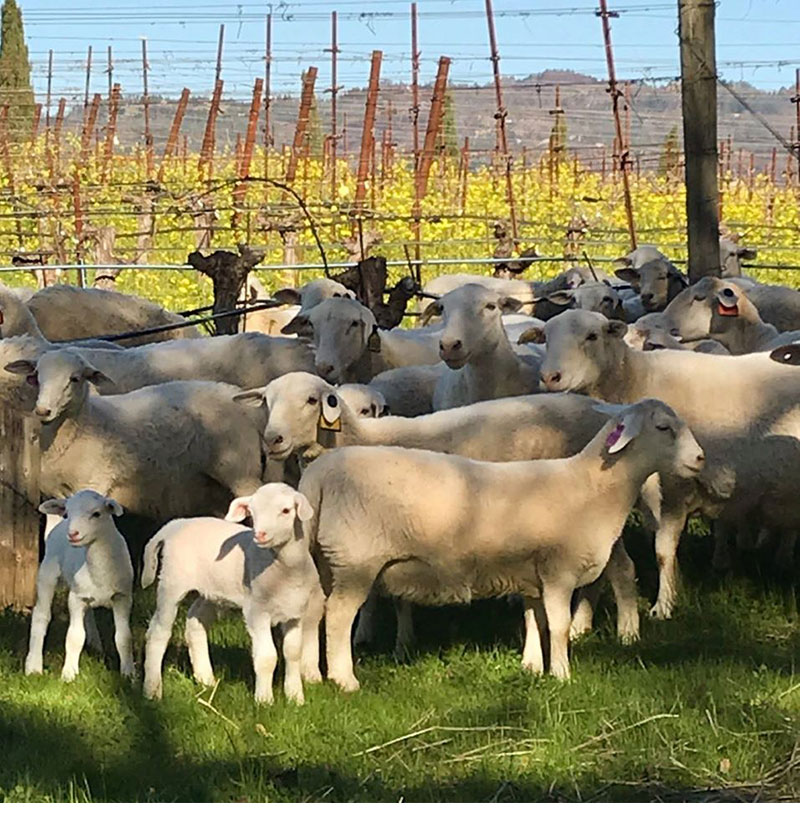 These days, wine drinkers are increasingly seeing the words sustainable, organic, and biodynamic on wine bottles and in wine producers promotional materials. Stewardship of the land and the lack of chemicals sound appealing, and who doesn’t like something that is dynamic? But what, really, do these terms mean? In fact, they are not just amorphous “feel good” terms, but do have specific definitions as well as institutional certifications to go along with them.
These days, wine drinkers are increasingly seeing the words sustainable, organic, and biodynamic on wine bottles and in wine producers promotional materials. Stewardship of the land and the lack of chemicals sound appealing, and who doesn’t like something that is dynamic? But what, really, do these terms mean? In fact, they are not just amorphous “feel good” terms, but do have specific definitions as well as institutional certifications to go along with them.
Note: These criteria and certifications only specifically apply to wines made in the United States. Other nations may or may not have similar programs.
Sustainable
When a wine is termed sustainable, it means the winery engages in eco-friendly practices such as using drip irrigation or dry farming; limiting or eliminating chemical waste and the use of pesticides; replanting crops or trees to replace those harvested for production; reducing the winery’s carbon footprint; using cover crops between vineyard rows to improve soil health; prevent erosion, control vine vigor, discourage weeds, and promote the sustainable health of the vineyard; deploying beneficial insects to control pests whenever possible; recycling packaging; taking part in energy efficiency initiatives; wildlife conservation; and other ‘green’ initiatives. Sustainability basically implies that the business is leaving as little negative impact on the land as possible.
CERTIFICATIONS
Certified California Sustainable Winegrowing (CCSW) is a statewide certification program that provides third-party verification of a winery’s commitment to continuous improvement in the adoption and implementation of sustainable winegrowing practices.
Sustainability in Practice (SIP) Certified helps farmers and winemakers demonstrate their dedication to preserving and protecting natural and human resources.
Global Good Agricultural Practice (GAP) Certification is an internationally recognized system that sets standards to ensure safe and sustainable agriculture and ensure product safety, environmental responsibility and the health, safety, and welfare of workers.
The Napa Green organization supervises two programs. Land is an umbrella program that recognizes growers with validated environmental compliance and verified farm plans as meeting standards for watershed stewardship. Winery is one of only four sustainable winegrowing programs nationwide, offering the opportunity for comprehensive soil-to-bottle certification in both the vineyard and winery.
The California Sustainable Winegrowing Alliance is a certification program that provides verification that a winery or vineyard implements sustainable practices and continuous improvement.
Organic
Organic wines are about the protection of natural resources, to promote biodiversity, and limit the use of synthetic products, especially in the vineyards. Organic wines are made with organic grapes, of course. That starts with the use of no synthetic pesticides in the vineyard. Once the vinification process begins, substances like commercial yeast must also be certified as organic. Further, for the wine itself to be organic, there can be no sulfites added during production, although some sulfites do occur naturally in all wines. Sulfites are chemicals used as preservatives to slow browning and discoloration in foods and beverages, including wine, during preparation, storage, and distribution. Sulfites have been used in wine making for centuries, but some people are sensitive to them. If you’re not asthmatic, sulfite sensitivity would be very unusual. If you do have asthma, your chances of being sensitive to sulfites is in the range of between 1 in 40, and 1 in 100. (I myself am asthmatic, and have no sulfite sensitivity.)
Certification
Certification is an arduous, three-year process during which producers have to transition vineyards by discontinuing any use of prohibited substances. To be “Certified Organic,” wines must meet the United States Department of Agriculture (USDA) National Organic Program’s criteria in both farming and production, as well as requirements set by the Alcohol and Tobacco Tax and Trade Bureau.
Biodynamic
Biodynamic is the most rigorous of these three protocols. Although based on both sustainable and organic, it goes much further. It is a spiritual-ethical-ecological approach to agriculture, gardening, food, and nutrition. Biodynamic wine is made with a set of farming practices that views the vineyard as a complete organism. The idea is to create a self-sustaining system with natural plants, materials, soils, and composts. Chemical fertilizers and pesticides are forbidden. Instead, a variety of animals and insects will typically live in the vineyard to fertilize it and control pests. Biodynamic farming also has an association with ancient agricultural concepts such as following lunar growing cycles and astrological charts, connecting the earth, the vines, and the solar system. (This last part gets a little squishy, imho.)

And more than just concept, Biodynamic is a registered trademark of Demeter Association, Inc., the United States’ branch of Demeter International, a not-for-profit incorporated in 1985 with the mission to enable people to farm successfully in accordance with Biodynamic® practices and principles. Demeter’s vision is “to heal the planet through agriculture.”
Certification
The Demeter Biodynamic Farm Standard applies to the certification of farms and ranches for the purpose of allowing them and their resulting agricultural products to carry the Demeter certification marks Biodynamic®, Demeter® and Demeter Certified Biodynamic®. The Demeter Biodynamic Farm Standard meets the minimum requirements set by Demeter International. These base standards form a common legal foundation and agricultural framework for Biodynamic practice worldwide.
Top of page: https://winervana.com/blog/

One Reply to “Sustainable, Organic, and Biodynamic Wine”